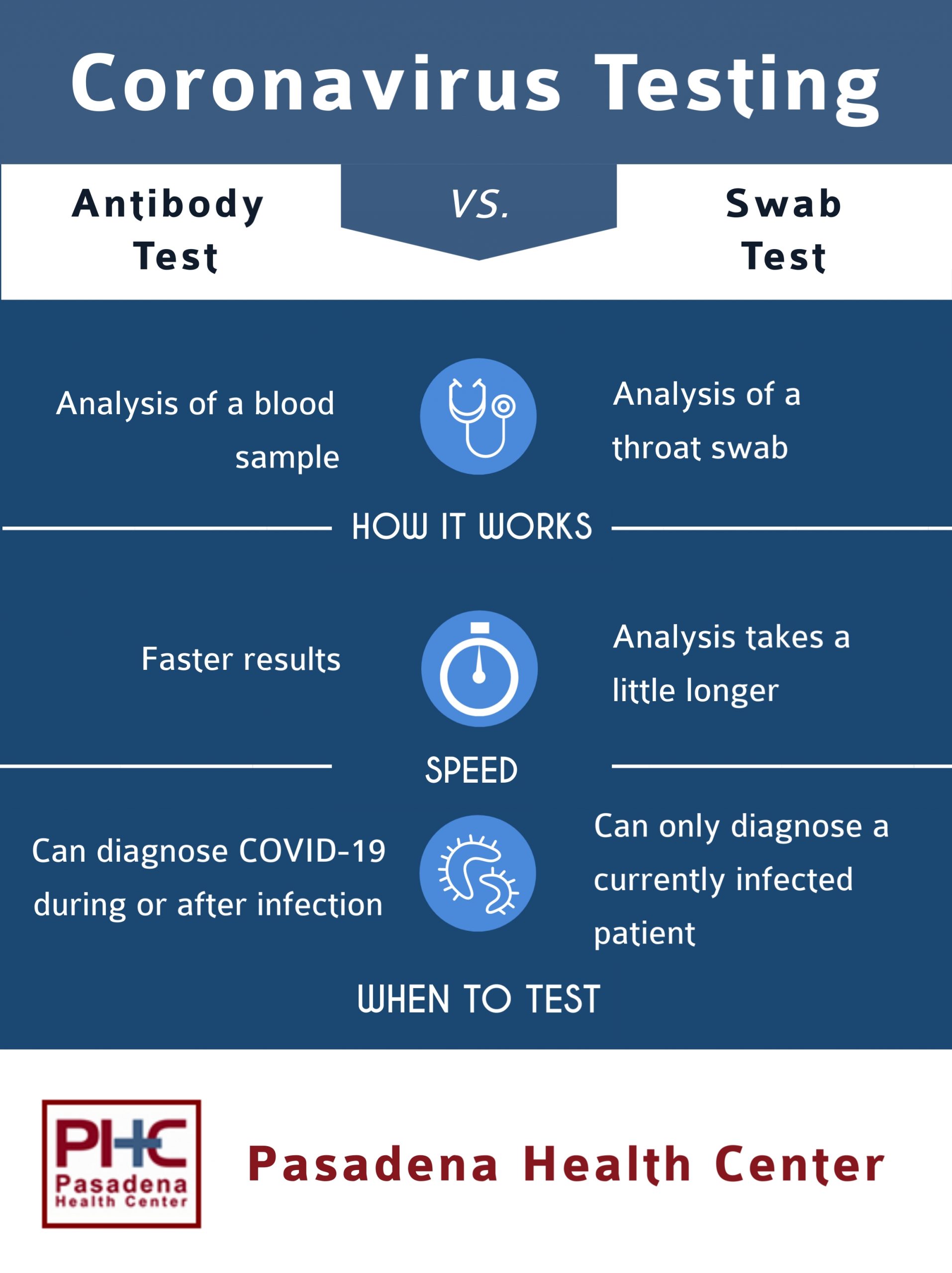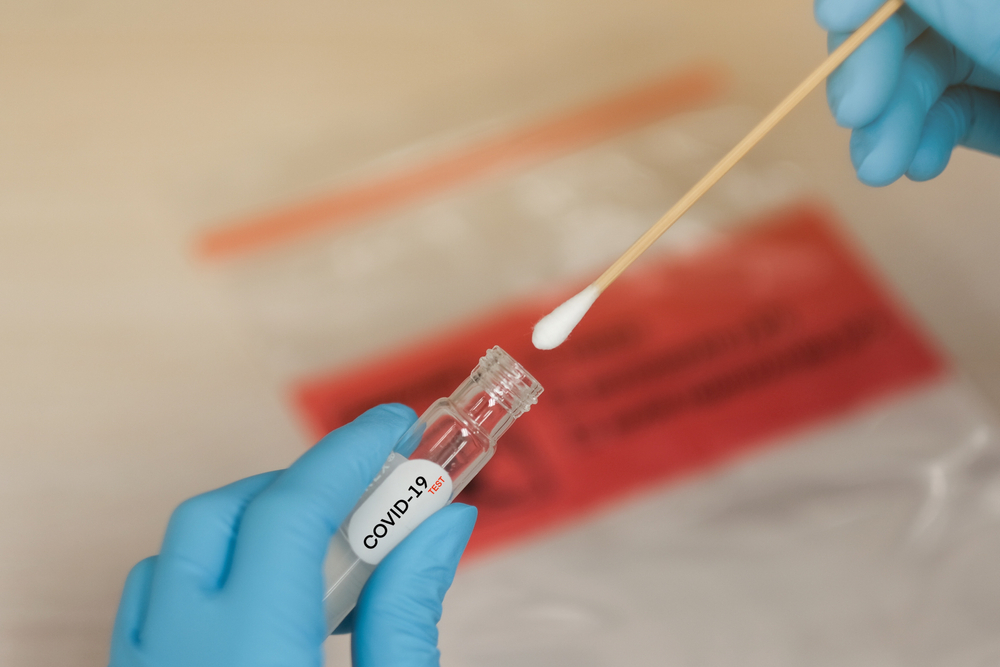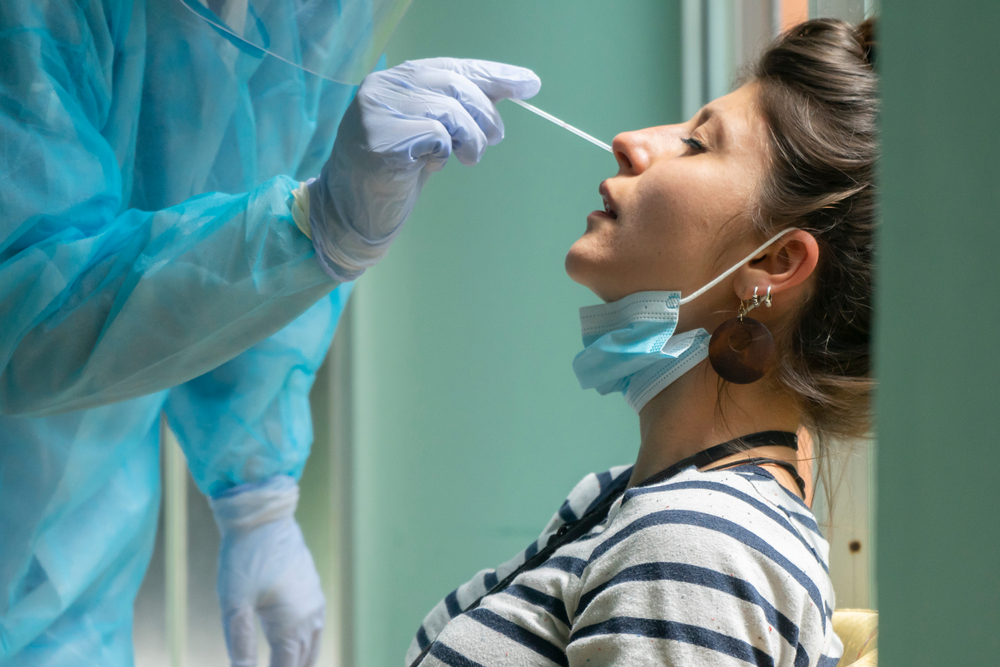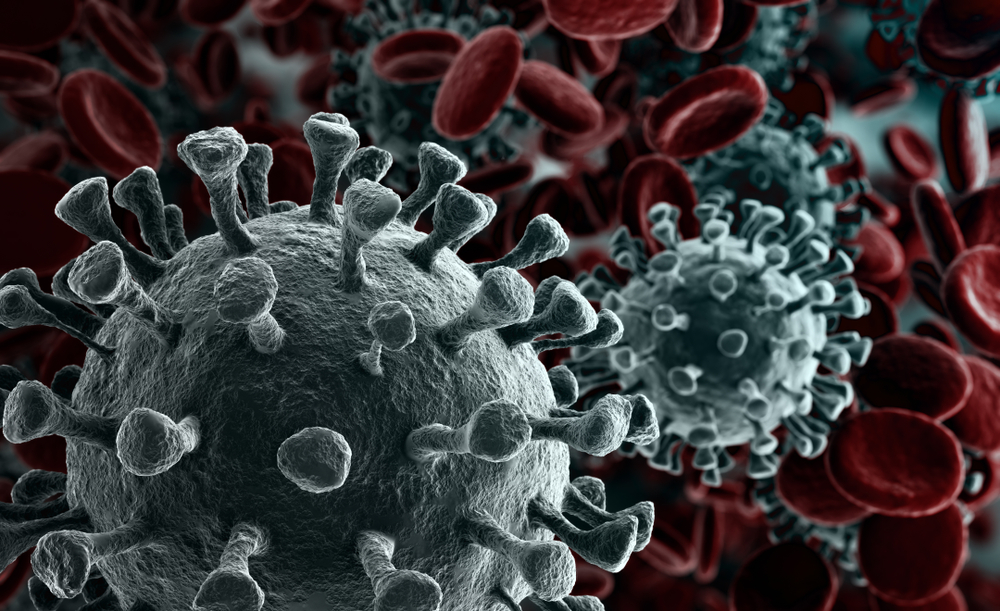Have you been in contact with someone who has tested positive for coronavirus (SARS-CoV-2)? Are you experiencing symptoms such as shortness of breath, a fever, cough, or muscle pain? If you think you might have coronavirus, you have a couple of testing options.
Currently, there are two options when it comes to COVID-19 testing, the antibody and swab test. While there is no FDA approved tests you can take at home, there are self-diagnostic testing tools online.

Antibody Test
The antibody or serology test is essentially a blood test used to determine the presence of antibodies for SARS-CoV-2. The test is not as sensitive as the swab test and indirectly detects the virus.
Doctors test for two kinds of antibodies to coronavirus. They look for:
- IgM antibodies, which develop early in an infection
- IgG antibodies, which are more likely to show up later after you’ve recovered
Antibody tests can’t tell you if you’re immune to COVID-19. That’s because it’s not possible to determine how long these antibodies might protect you against the coronavirus. And these tests should not be used to diagnose the virus.
The catch is because it is not a diagnosis you need a swab test to confirm if you have contracted the virus or not. The issue is so many people have COVID-19 and do not know they have it. So the antibody test can give doctors a baseline and the swab if a definitive test that says either yes or no you have an active virus.
At PHC, we are offering the antibody test to anyone who wants it and if you test positive, we encourage a PCR or SWAB test.
Swab Test
The real-time polymerase chain reaction (RT-PCR) or swab test is what the State of Texas Department of Health Services prefers for detecting the virus. To perform the test, a nose and throat swab must be collected and the process can be a bit uncomfortable. The swab test locates a segment of the virus’ genetic material to detect the virus. Unlike the antibody test, the RT-PCR test can only detect coronavirus while the patient is infected. For more guidelines and information about your testing options, visit the Texas COVID-19 Testing Information page.
When to Call Your Doctor
If you are experiencing critical symptoms, call your doctor or 911 immediately. The emergency symptoms include:
- Trouble breathing
- Blue or purple lips
- Unexplained confusion
- Constant chest pain
If you are experiencing mild symptoms, it’s recommended to perform an online self-diagnostic test.
Pro Tip: In order to limit your exposure to other people, you can schedule a remote appointment with your healthcare provider.
Conclusion
The SARS-CoV-2, is either a nasal pharynx test or oral pharynx exam. A swab test can tell only if you have the virus in your body at that moment. But a blood test shows whether you’ve ever been infected with the virus, even if you didn’t have symptoms. Do you have questions about COVID-19 or want to schedule an appointment? Connect with our healthcare professionals to learn more.




